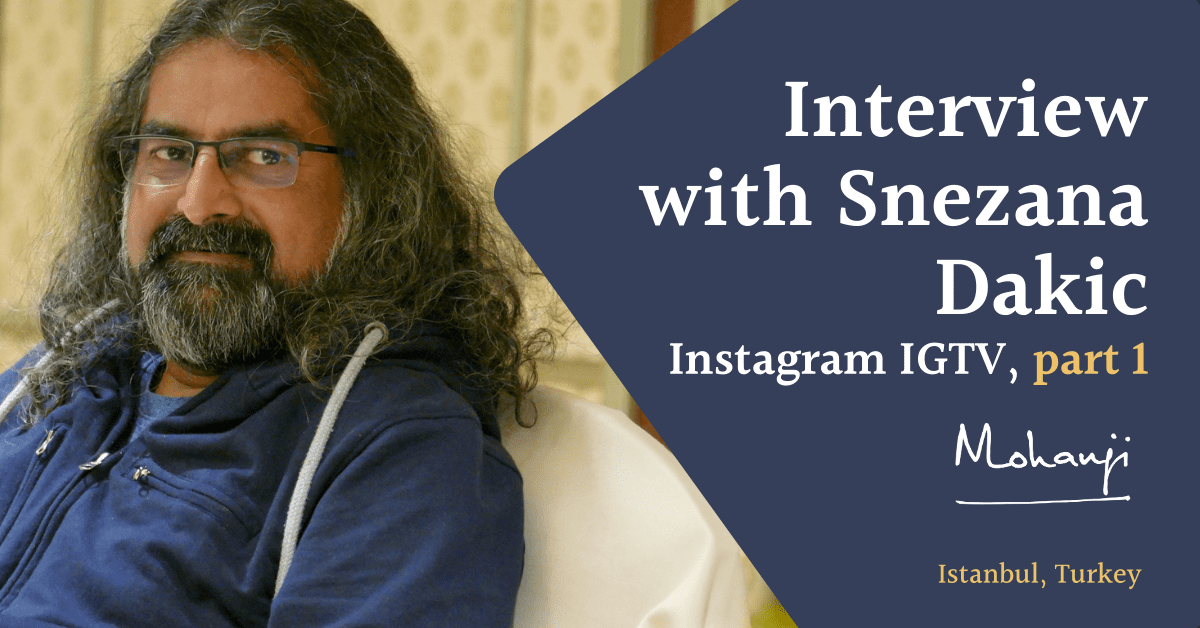Interview with Snezana Dakic (Serbian TV personality) on Instagram IGTV – Part 1
Click here to listen to the interview
Happy Life
Question: So, please tell me, what do you think are the main obstacles for a happy life, for being fulfilled?
Mohanji: Fundamentally, it’s a lack of acceptance of ourselves. The moment you start accepting yourself with all your weaknesses and all your strengths, life takes off. Many times we are trying to compare ourselves with somebody, or we are competing with somebody. That’s not being us. We have to be totally us.
Self-Acceptance
Question: It is difficult to accept yourself. What do we do to achieve that?
Mohanji: This is a practice. This is a kind of daily practice, it’s like a practice you got to do. You just have to assess, even write down how much of ‘you’ you accept and how much you reject. How much you are pretending, and why you are pretending? And are you trying to prove something to somebody? Or are you trying to mask your true nature? These are important questions to ask yourself. If you don’t ask yourself, you will always be in a mask; you will never explore yourself.
Transition
Question: Actually, once you accept yourself, you can change what you don’t like and work on yourself.
Mohanji: Well, it’s not that you can change; it changes by itself. What you are not – goes away. What you are – remains. So, it’s as simple as that. In our houses, we can see that the most natural people are our children, small children. They are never worried about what others think about them; they are very happy with themselves; they are content with themselves; they are natural. We were also natural at one time, then for the sake of adjusting to society, we started pretending, and we lost ourselves.

Comparisons
Question: So, how do we avoid comparing ourselves with others?
Mohanji: We must understand that during our waking hours, when we are dealing with society, the most authentic way to deal with society is to be totally us. Not in a pretentious mode because what are we contributing to society? It is our uniqueness, the way we are, our own nature, our own unique character, constitution, the form, the expressions, and the personality. This we have to maintain.
And as you see, we appreciate and love a lot of celebrities, right? What do we love in them? Their uniqueness. Not because they look like somebody else. You know, we try to look like them, but they don’t look like somebody else. This is exactly one of the things which you must remember. People love uniqueness; people love your true form, your true personality. If you stop being that, you’re just another brick on the wall, another person in the society, people may not recognize you.
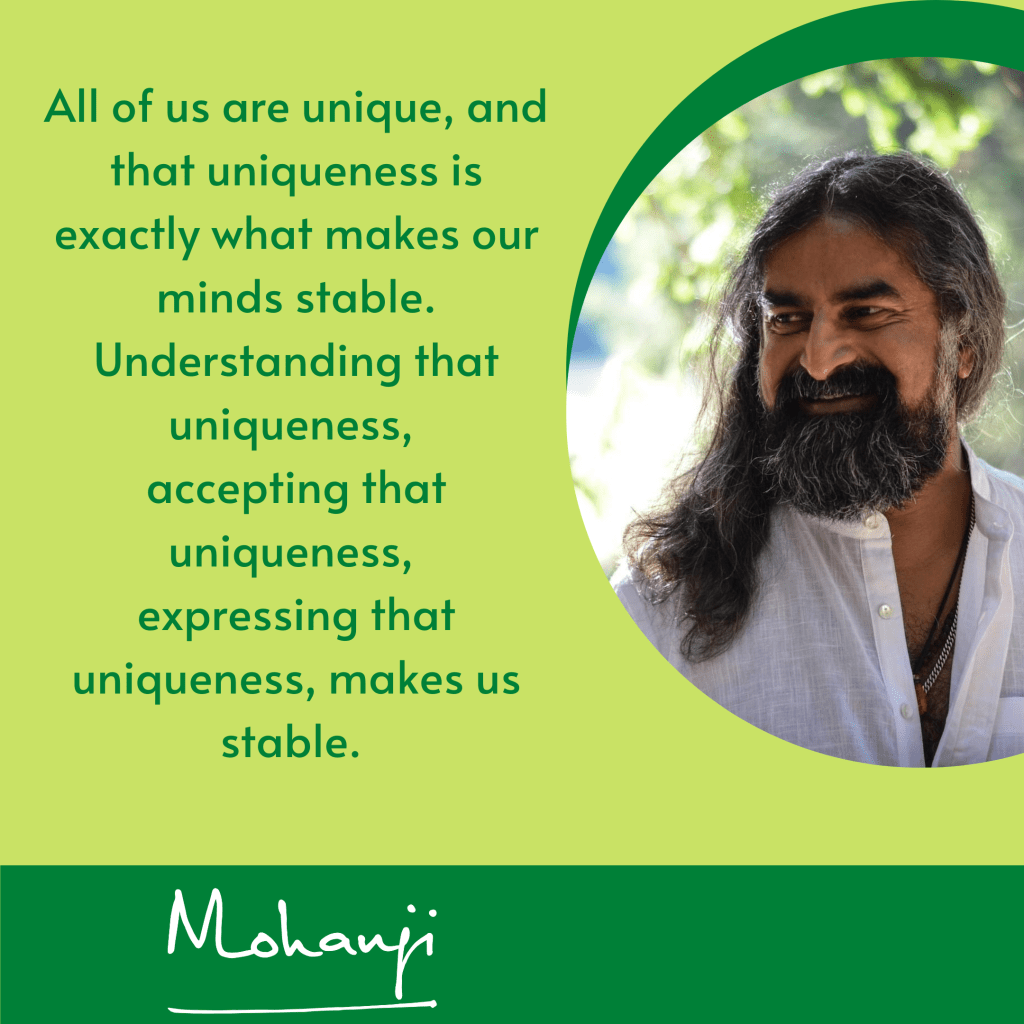
Being Fearless
Question: Well, one important question, in my opinion, is, why do we feel so much fear, and how can we become fearless for life?
Mohanji: I feel this is mostly because we have been trained to imitate, or compete, or compare ourselves with somebody right from our school days. We never ever accepted ourselves as a true unique incarnation, an original. But instead, we say, “Look at the other student; he’s doing better than you; look at another person better than you.” So, we started competing. We don’t have to compete. A person who loves to be an engineer, if you force him to be a doctor, he will not be successful. It’s like asking a fish to climb a tree, and we call the fish a failure.
So, this is what society does to people. We must understand we are unique; we are original. And this is the only thing we need to express in the world, and the world appreciates that.
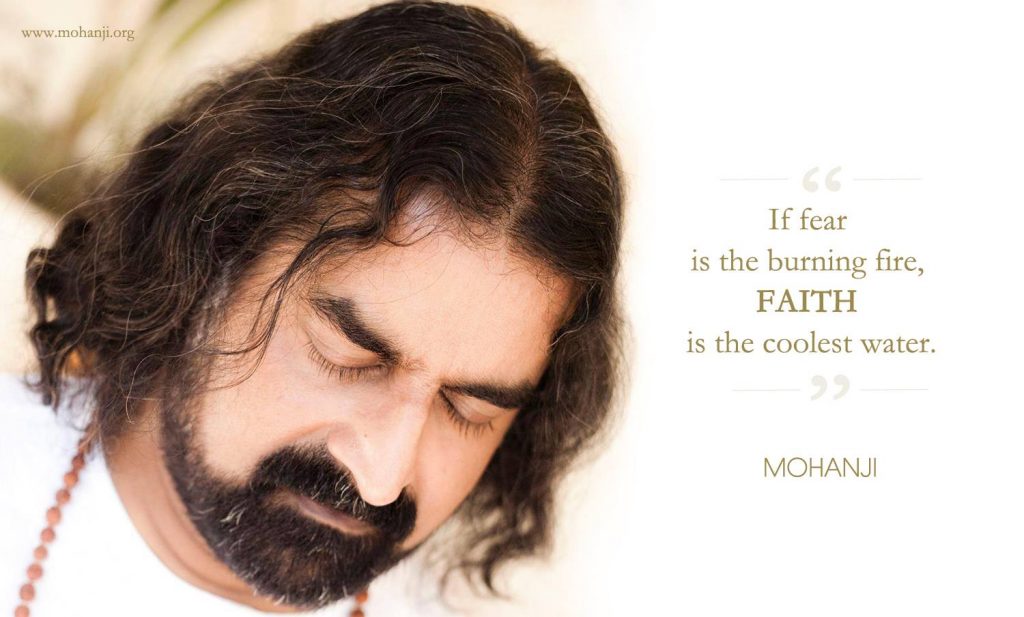
Ownership
Question: So, let’s talk about greed and passion for possession.
Mohanji: We have been trained to own things. We are always focused on owning things. We own property; we own wealth; we own people, relations, positions, possessions; we try to own them and, in the bargain, we fail to enjoy them. But what is life for – experiencing and enjoying? We don’t do that. You can see many people very rich and very successful in society, but if you ask them, “Are you really happy”; the answer would be more or less “No”. They are always in fear of something or in stress because of the positions and the possessions, property, wealth, or stress of relations.
Also, if you look at our relations, we see that sometimes our relations are not working, relationships are not working, and we try to own them; we try to possess them and control them. The secret of having a successful relationship is the freedom you give in it. How much freedom you give, that much successful the relationship would be. So, we have to redefine our life; we have to reinvent ourselves. Forget about what we learnt. Instead, focus on what is real, what is you, who you are, what you are, and why you are here.
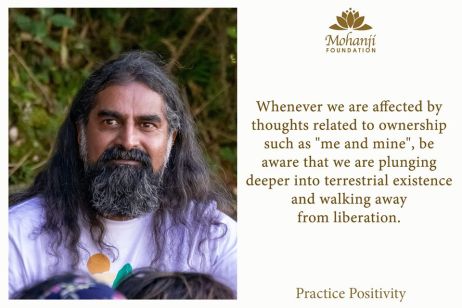
Self-esteem
Question: One more question for Mohanji. How do we build up our self-esteem?
Mohanji: Self-esteem can be built up through three aspects: self-acceptance, self-love, self-respect. We have to respect ourselves; only then society can respect us. When we are insecure about ourselves, when we have tremendous complexes; when we do not like ourselves – we do not like anything we do or the way we think, or we act, then it reflects in society. What you are gets reflected in society.
So, there’s no point in complaining that society is not accepting us. Society accepts those who accept themselves. So, self-esteem is the confidence that you have to build within, through understanding that nobody is higher than you, nobody is lower than you, nobody is equal to you. You are unique, and there’s only you. Your own thumb impression, your own character, constitution personality, that is unique. And that’s exactly why we appreciate celebrities, because they chose to be themselves, not because they imitated somebody. The world does not like imitations. The world laughs at imitations as a comedy, it’s fine. But in reality, it’s your uniqueness that really makes a difference.
Thank you very much.
Mohanji: Thank you. Thank you so much. Thank you for your time.
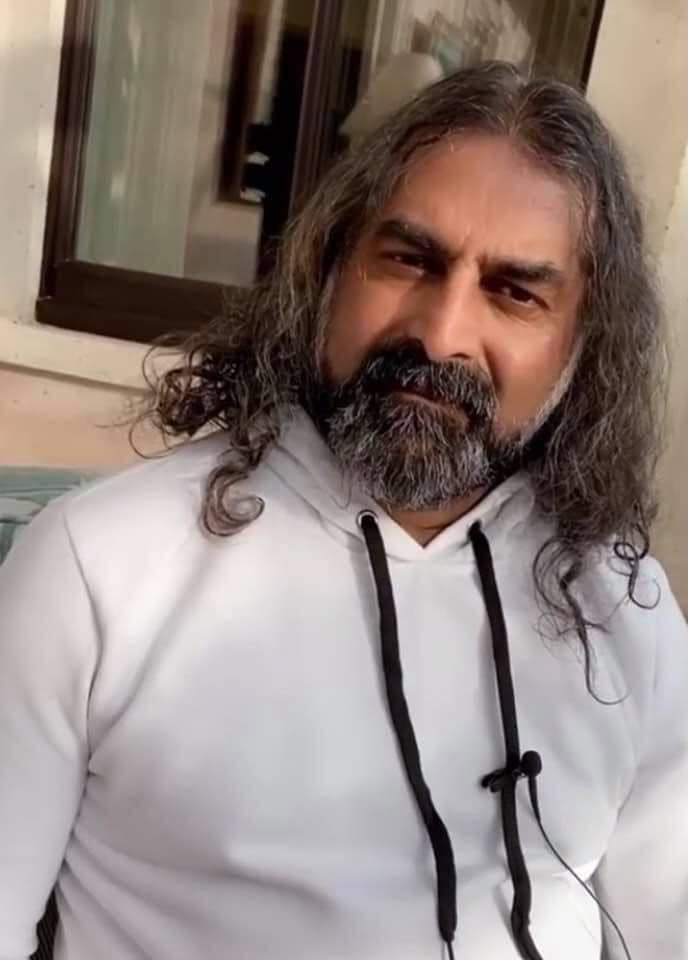
Transcribed by MEA office
Proofread by Rekha Murali

